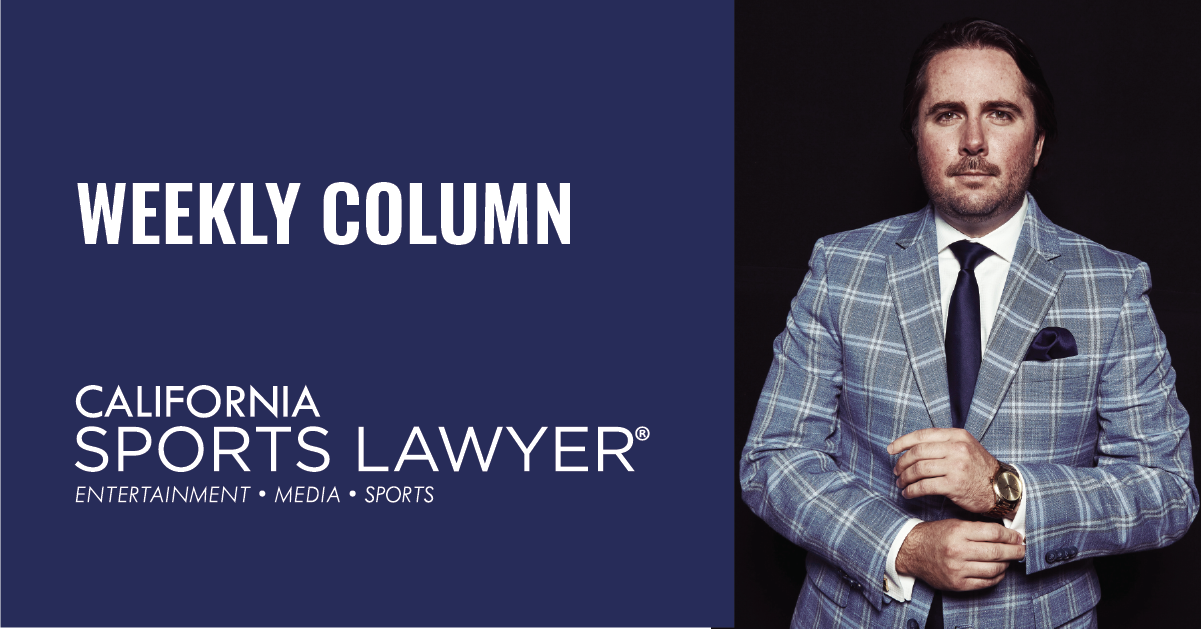In his capacity as a Columnist for California Sports Lawyer®, Founder and Managing Attorney Jeremy Evans has written a column about the growth of NIL in college sports and how it led to the closing of the NBA's G League Ignite team that provided graduating high school basketball players an alternative pathway to get paid like a professional, while skipping college.
You can read the full column below.
~
The National Basketball Association (“NBA”) has officially announced the termination of the NBA G League Ignite team that offered high school and college basketball stars the opportunity to play professionally for $500,000 per year and receive a full scholarship to attend Arizona State University for an education in pursuit of a degree. Formerly the D League, for developmental league, it was renamed “G League” when Gatorade sponsored the league beginning with the 2017-2018 season. Non-Ignite player salaries in the G League range from $40,000+ (for a five month contract), but could be significantly more for a two-way contract player that also plays for one of the thirty NBA teams.
By comparison, the minimum NBA salary for 2024 is $1.1 million. The G League consists of thirty-one teams. Every NBA franchise has a developmental team with the Phoenix Suns set to debut its G League team for the 2024-2025 season. Of the five top picks in the 2023 NBA Draft, four were non-college players (G League Ignite (1), international players (1), and Overtime Elite (2)) (see more below).
The NBA made the decision to shut down the Ignite team because of the suspected growth of the March Madness field of teams from sixty-eight to a larger number (with increased television contract value), the explosion of name, image, and likeness (“NIL”) dollars, and the use of the transfer portal, which analysts are referring to as an era of free agency in college football and men’s basketball. NBA Commissioner Adam Silver questioned the validity of such a higher paid G League team for graduating high school basketball players in February 2024. It is a valid point that NIL has changed the moneymaking ability of college basketball players, but enough to cancel a pathway to the professional ranks being used to avoid playing in the NCAA before getting drafted? Major League Baseball, the National Hockey League, and Major League Soccer do not require the NCAA for admission into the professional ranks. Only the National Football League (“NFL”) and the NBA do that through the "one-and-done" and junior year rules.
The NBA and National Basketball Players Association ("NBPA") collective bargaining agreement ("CBA") requires a one-and-done rule, which prohibits players from signing with the NBA until they are nineteen years old or one year removed from the graduation of his high school class. However, the Overtime Elite ("OTE") league now has less competition with Ignite closing its doors. OTE is for 16-20 year old basketball players, who either get paid $100,000 or the money is set aside for college scholarships. Where OTE provides an alternative pathway, the question of ending the Ignite team goes beyond finances. It is a question of value and business ethics.
Should a high school basketball or football player be required to go through the NCAA while playing for a university to be draft eligible? Of course an athlete could play overseas, e.g., LaMelo Ball, but that is not an option for every player. The NBA might be able to cash-in on a consolidated approached to “minor league basketball” similar to how Major League Baseball has managed the minor league “farm” system, which is mirrored in hockey, and of course in soccer through camps and clubs. Football is treated differently because the professional game in the NFL is much stronger, faster, and dangerous to younger athletes. Those same health concerns are not as prevalent in basketball as players leaving college early have shown success in the NBA, sometimes immediately.
The freedom to choose your own pathway is the highest value. It is a terrific opportunity and responsibility. It is evident in our Constitution and as a basic human right. This is often balanced with its impact it has on others. In other words, the liberty to make a decision goes to the point of harming someone else and that is where rules and policies determine best practices and behaviors.
There does not seem one good reason for the athletes as to why the NBA keeps the one-and-done rule preventing high school athletes from entering the NBA Draft immediately upon graduation especially in light of closing down the Ignite team. What is clear is that the NBA and NFL utilize the NCAA as a drafting ground for the future. If one disagrees that this is a moral or ethical question, it is interesting that by delaying admission in the professional ranks, the NBA and NFL benefit, and have in some ways created the need to have a serious and confusing discussion surrounding amateurism in college sports.
~
About Jeremy M. Evans:
Jeremy M. Evans is the Chief Entrepreneur Officer, Founder & Managing Attorney at California Sports Lawyer®, representing entertainment, media, and sports clients in contractual, intellectual property, and dealmaking matters. Evans is an award-winning attorney and industry leader based in Los Angeles and Newport Beach, California. He can be reached at Jeremy@CSLlegal.com. www.CSLlegal.com.
Copyright © 2024. California Sports Lawyer®. All Rights Reserved.





